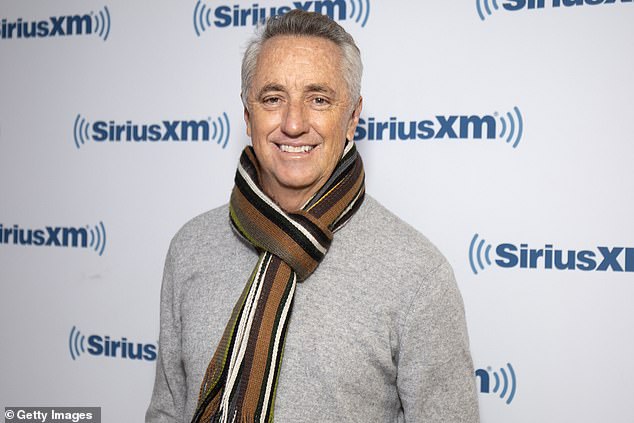Trump Under Fire: Rick Reilly’s Bold Claims About President’s Golfing
By Jake Fenner, US Sports Writer | Published: August 7, 2025
In a recent exchange that has reignited debates about ethics in golf, renowned sports writer Rick Reilly has publicly criticized President Donald Trump’s claims regarding his golfing achievements. Reilly, known for his sharp wit and deep knowledge of the sport, has often detailed Trump’s questionable practices on the golf course in his book Commander in Cheat: How Golf Explains Trump. This article dives into the latest spat, its implications, and its broader significance in the golfing community.
Setting the Stage
Reilly’s latest jab came after Trump shared a video on Truth Social that claimed he had won "36 Club Championships". The sports writer quickly challenged this assertion, citing inconsistencies in Trump’s past statements about his golfing accolades. Reilly’s skepticism is bolstered by his extensive experience; he has authored several bestsellers focusing on golf, including a critical biography of Trump.
The Numbers Don’t Add Up
Using a screenshot of Trump’s video, Reilly took to his platform to comment: "Number of ‘championships’ he said he had last time: 24. Number he claims now: 36. Actual count? Zero." This critique is emblematic of a narrative Reilly has pursued for years, relentlessly exposing what he perceives to be Trump’s inflated ego and propensity for deceit.
Trump’s inconsistencies regarding his golfing prowess have become a recurring theme in Reilly’s writing. His original book, which chronicles his personal experiences with Trump alongside interviews from numerous golfing professionals and caddies, paints a picture of a man who routinely bends the truth when it comes to his skills on the golf course.
A History of Accusations
Reilly isn’t a lone voice in this critique. Several individuals, including fellow golfers and entertainment industry figures, have publicly questioned Trump’s integrity on the links. For instance, actor Samuel L. Jackson recently alleged that Trump cheated during a round they played together, affirmatively declaring himself the superior golfer without resorting to dishonesty.
This pattern of cheating allegations paints a troubling portrait of the former president’s character—both on and off the golf course. Reilly’s work and Jackson’s claims speak to a broader conversation about honesty in sport and what it means for the integrity of the game.
National Reactions
Reilly’s criticisms have incited varied responses across social media platforms. Some fans of Trump have admonished Reilly for disparaging the president, urging him to "stick to sports." Yet, others support Reilly’s position, emphasizing that integrity in sports should be upheld, regardless of one’s political affiliations.
Moreover, Reilly’s posts have gained traction following a viral video that depicted Trump supposedly receiving an advantage during a game at Turnberry, a golf course he owns in Scotland. The footage showed a caddie stopping to assist the president by placing a golf ball in a more favorable position, a move that drew immediate backlash and accusations of cheating from onlookers.
Going Viral
The video’s online reaction was swift, with many commenters expressing disbelief and derision at Trump’s apparent need for assistance on the course. One comment even noted, "Who needs a foot wedge when you have a personal ball dropper?" This light-hearted jibe underscores the irony many find in the situation: that a former president engaged in such behavior.
As the video circulated, additional criticisms emerged, drawing parallels between Trump’s golf habits and broader questions of honesty and authenticity in public life. The public scrutiny highlights how Trump’s golfing antics serve as a metaphor for his presidency—exaggerated claims and questionable ethics.
Legal and Ethical Considerations
The implications of Trump’s behavior stretch beyond mere golf. As a public figure, his actions can shape perceptions about sportsmanship and the ethical standards expected of individuals in leadership roles. Reilly’s ongoing critiques challenge readers and fans alike to question not just Trump’s golf game, but the moral compass of leadership in general.
The Book’s Influence
Reilly’s Commander in Cheat became a New York Times bestseller upon its release in 2019, showcasing the public’s intrigue with Trump’s questionable character and golf habits. The book serves as a combination of memoir and critique, and Reilly’s candid approach has resonated with readers eager for insights into both Trump’s golfing and his presidency.
With its biting humor and incisive observations, the book raises important questions about how personal conduct in sports might reflect broader character traits. Reilly’s anecdotes from interviews with golf professionals and his direct experiences with Trump create a compelling narrative that keeps readers engaged.
The Fight Continues
As the fallout from Reilly’s latest criticisms continues, the lines are sharply drawn between supporters and detractors of Trump’s golfing achievements. What will be the lasting impact of this latest controversy? Will it further solidify perceptions of Trump as the "Commander-in-Cheat," or will it fade into the background of the ongoing political and cultural discourse?
Conclusion: A Game of Integrity
The accusations from Reilly and others remind us that sports, at their core, are about honesty, integrity, and fair play. As golf fans and sports enthusiasts, we must ask ourselves: how can we hold our leaders accountable? Rick Reilly’s powerful voice serves as a wake-up call, urging a return to the values that make golf—and all sports—worth celebrating.
In the end, the story of Trump’s golf game only highlights a broader narrative: the importance of integrity in sport and life. As we continue to enjoy the game, let’s strive for transparency and authenticity on the green—and beyond.
In following these developments, one cannot help but wonder how the dynamics of sportsmanship will evolve as the debate around Trump’s golfing prowess comes to light once again. Will Reilly’s observations push for a greater sense of accountability in sports, or merely add fuel to the fire of political outrage? Only time will tell, but one thing is certain: golf is much more than a game for many—it stands as a metaphor for personal integrity in all facets of life.


